Study for Santur (ongoing)
Santur, sitar and electronics
In collaboration with Pooyan Nassehpoor, Chen Pei-yuan, Pei-ling Huang and Sebastian Blàha
Study for Santur is an ongoing performance project that preserves classical Persian music (Radif), and specifically, improvisational music of the instrument with the same name. The santur, or the Persian dulcimer, is a trapezoidal string instrument that is in the Persian music repertoire and can be connected to similar instruments both in Europe as well as East Asia.Through computer music, as well as working with traditional players, the project is rooted in research and digital reproduction of the instrument that draws similarities to the oral traditions of how the instrument is passed down over time.
The piece was initially performed with players that ranged from computer programmers to ethnomusicologist who are connected to the instrument with their respective backgrounds. In this performance, each musician started by exploring their instrument, and through a slow build up, the frequencies of the traditional and electronic instruments met in the frequency range of the santur. Additionally, live sampling in the space rendered the attack, sustain and decay of the instruments into an indistinguishable drone.
Currently, the project approaches the previous knowledge of the instrument, while looking at the more personal aspect of how it is taught between instructor (Ostad) and pupil. Persian music is traditionally passed down in a method called “sineh be sineh”, or chest to chest. The project mimics this in the digital diaspora where Iranians are globally dispersed. In the past 6 months, laptop lessons over Skype between Milad Mozari (Chicago) and Pooyan Nassehpoor (Dusseldorf) were conducted. The two recently performed at the Hong Kong Art Centre, where Milad was present and Mr. Nassehpoor performed remotely from Dusseldorf. The project in this remote yet personal method of communication hopes to continue a creative channel for preservation of the music.
Selected Images:
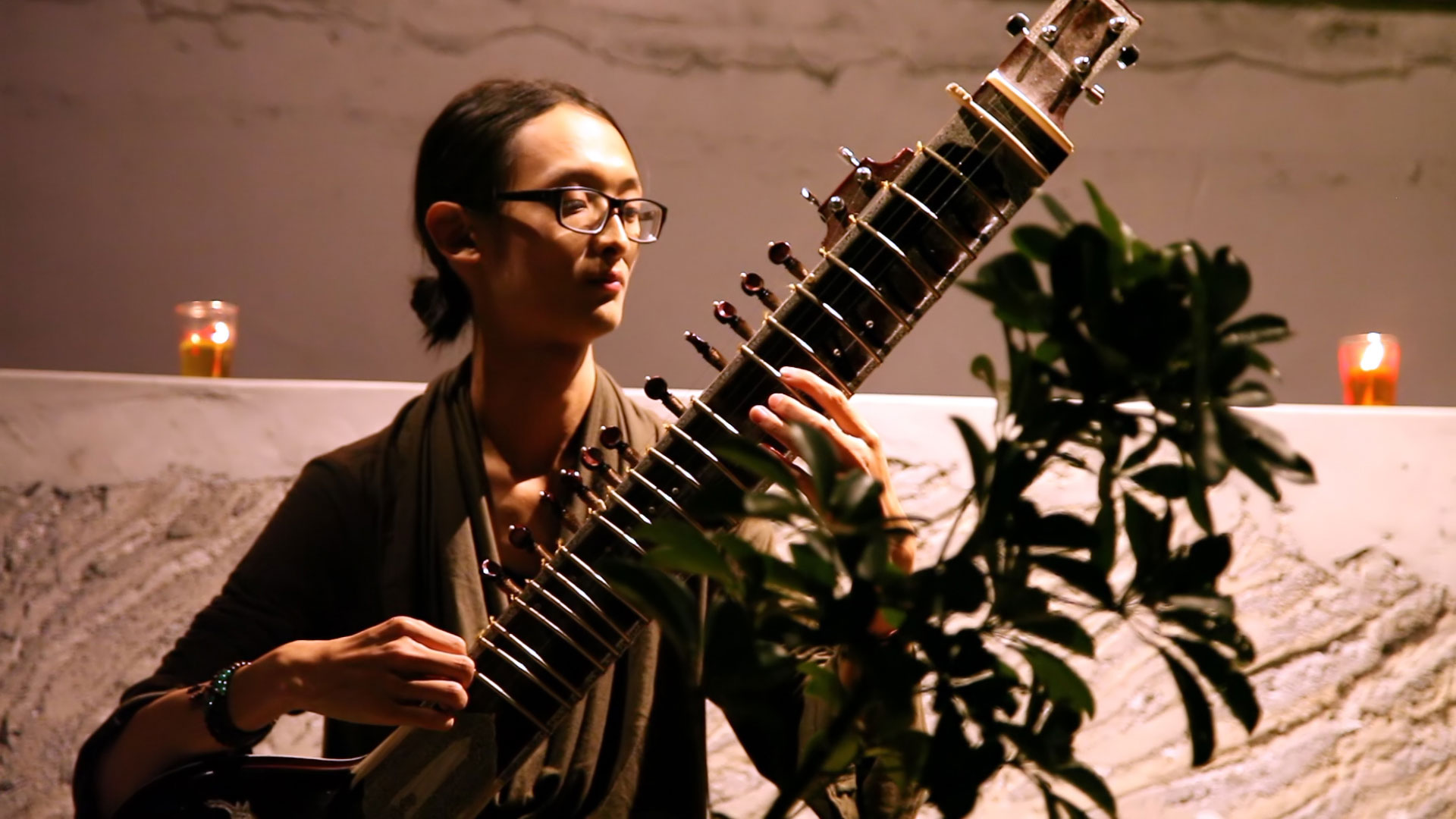

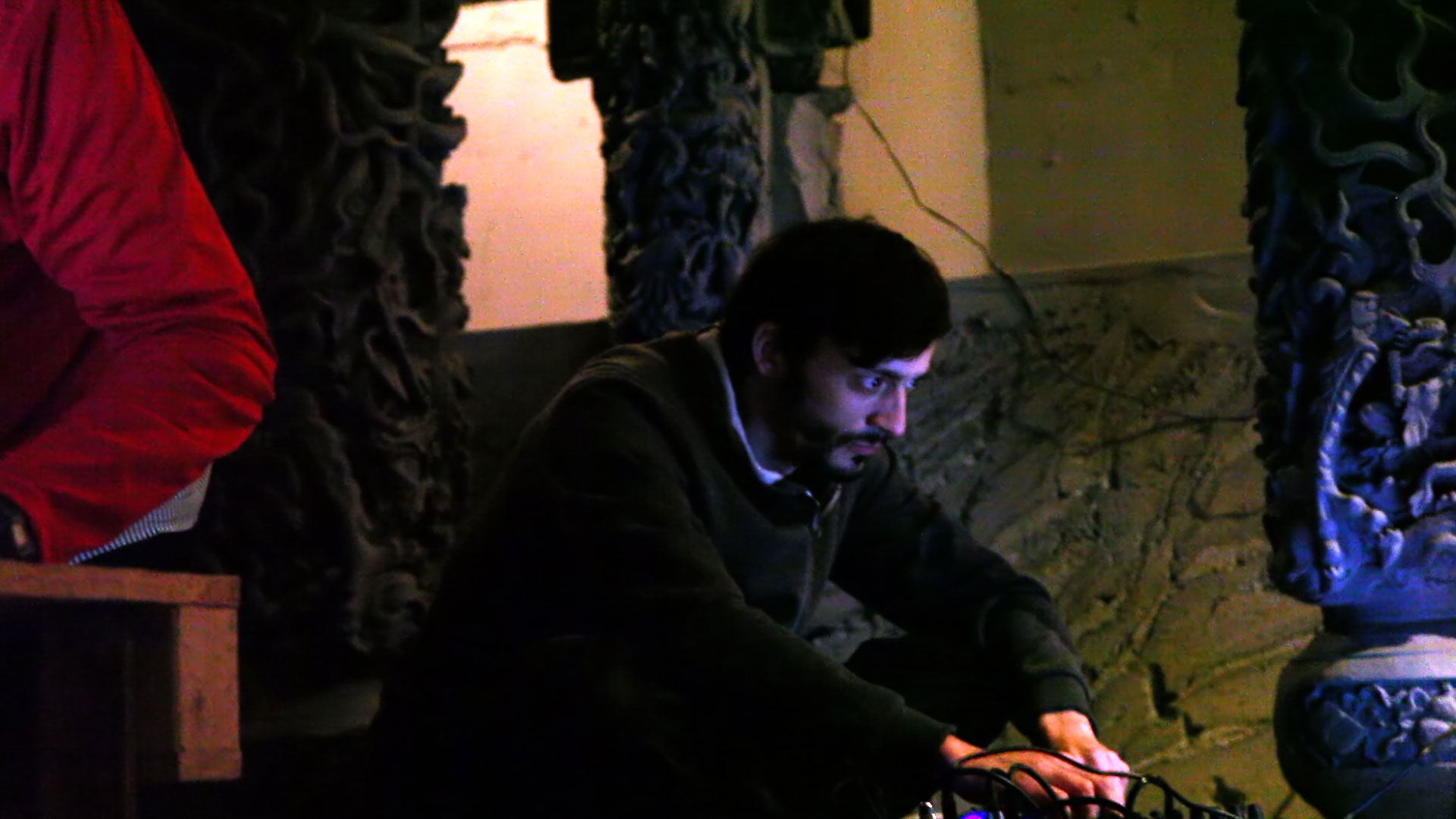
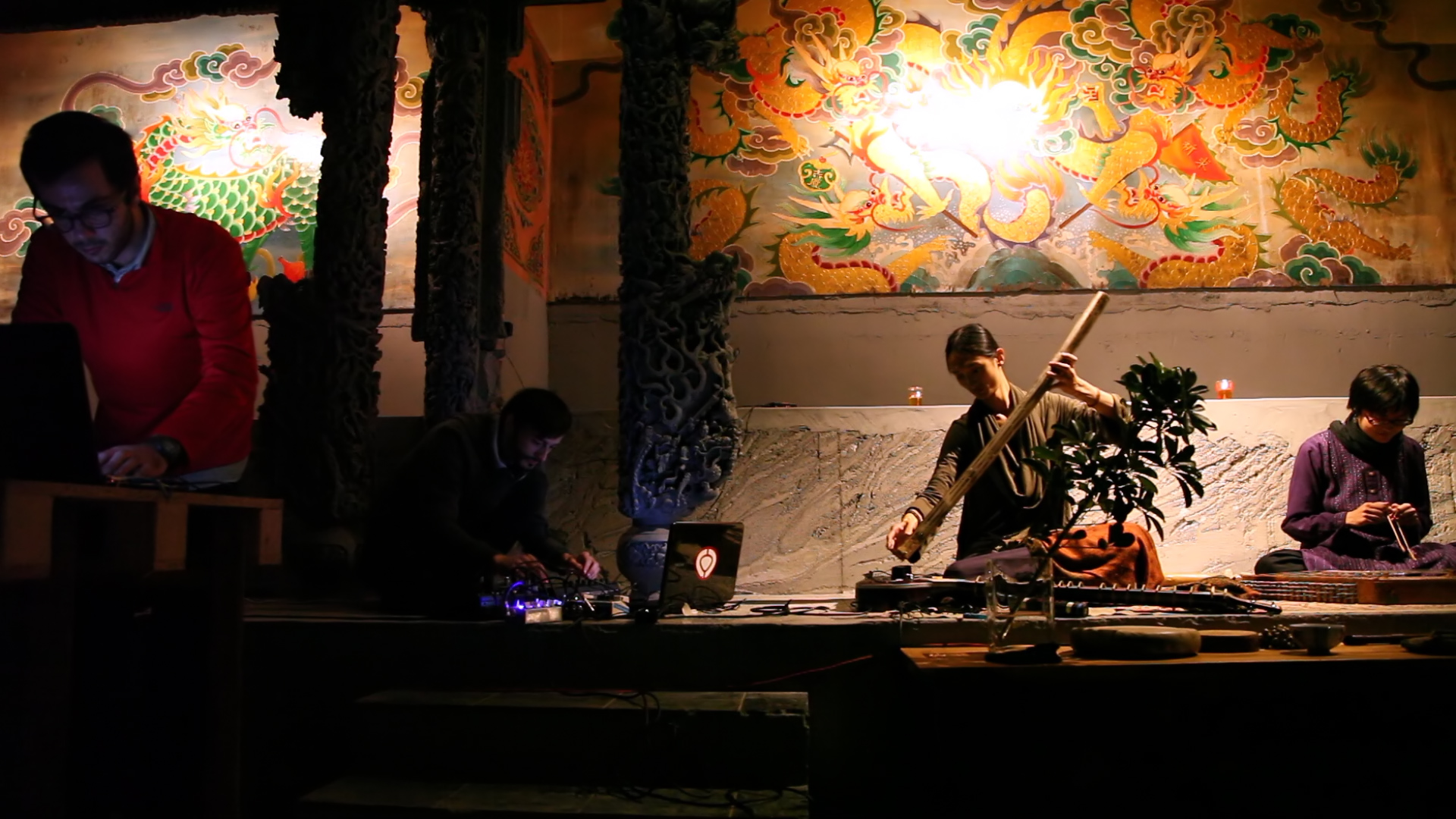

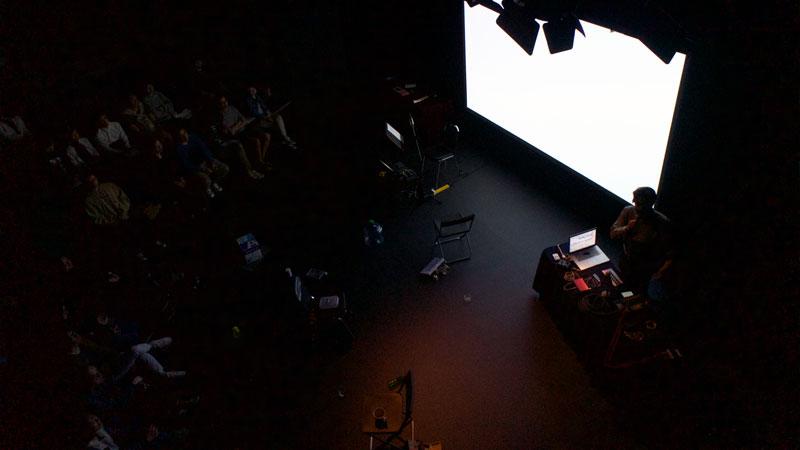
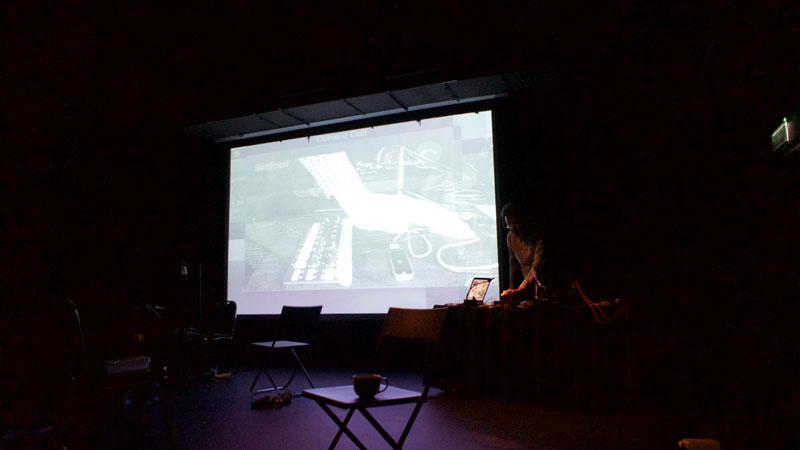

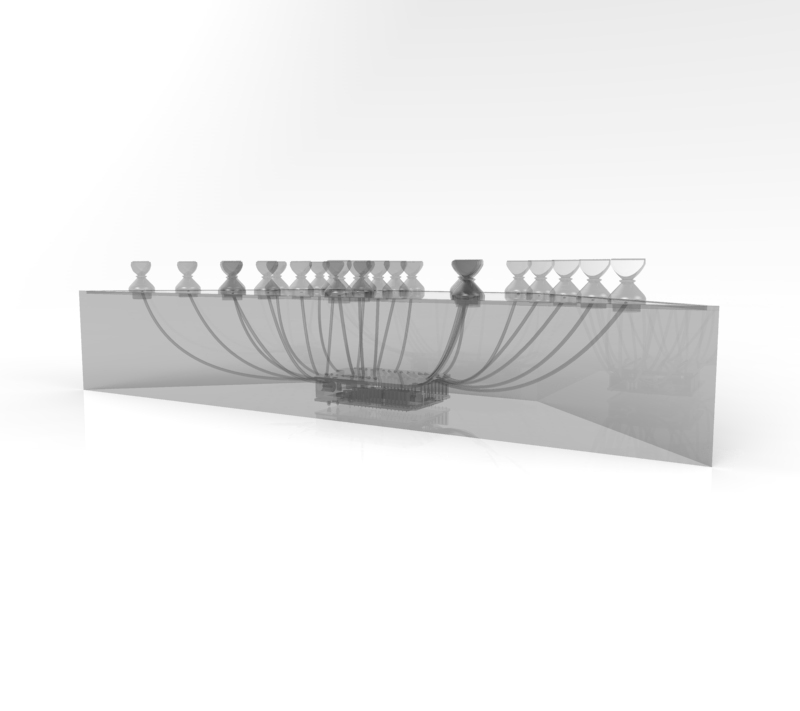
© Milad H. Mozari , 2025